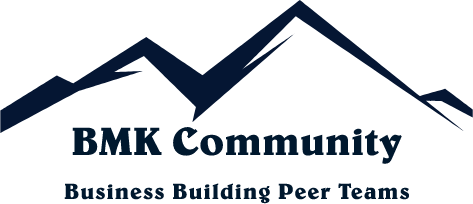In this Expert Q&A series, we interviewed three business owners who formerly owned their own MSP business and now facilitate Bering McKinley Business Building Peer Teams. We will get into the nitty-gritty of the actual value of a peer team, what to expect from a peer team in 2022, and the criteria for evaluating a good peer team fit.
Expert Q&A: Business-Building Peer Teams
Q:
Simple question, what is a peer team, and what’s its purpose?
Peer Teams are made up of business peers who act as your “board of directors” to hold you accountable to industry best practices. It’s a place to compare your performance against other “like” businesses and share challenges and accomplishments in a safe and helpful environment.
Q:
Why should an owner or business leader consider joining a peer team?
Many business owners are former technicians, engineers, and sales managers. They have built their business on referrals but do not follow a prescribed set of best practices to grow the business. They play many roles inside the business and could greatly benefit from their peers’ input, advice, and accountability in similar positions.
Q:
What is a “business building” peer team vs. an industry peer team?
They are advisory in nature and consultant facilitated. A consultant leads each group and reviews financials to help individual peer team members interpret those numbers against best-practice metrics to reach specific results. Consultants who have successfully run their own business can expand the scope of the discussion around business-relevant topics that keep each peer team member accountable to their stated goals.
Q:
What is the anatomy of a Business-Building Peer Team?
- A team of like-minded peers will share best practices and ideas, leaving you energized to take action and make needed change.
- Shared financials follow best practices so that everyone has a clear view of the intended target for any given metric.
- If you don’t know where you are going, you will never get there. Business Destination Planning helps each owner identify where they want to take the business. Goals and an action plan are put in place to help each peer member identify achievable goals for themselves and the business.
- To ensure each member is on-track, a Business Performance Assessment is assessed annually, evaluating actual performance against long-term goals.
Q:
How do I know if I am still in a good-fit peer team?
Ask yourself the following:
- Do I feel connected? Do I connect with other members outside of the meeting?
- Are you comfortable sharing your ideas, or do you feel shame when sharing raw truths?
- Do you know what your numbers are telling you? Can you use your numbers to make tweaks and changes along the way?
- Do you feel like you might be the smartest person in the room? Do you think, “I’m hearing this again?” Until all of your business goals are defined and met, there is always room to grow.
- Do you know where you want to take the business, and can your peer team hold you accountable for achieving those goals?
Business-building Peer Teams
Bering McKinley business-building Peer Teams provide the opportunity to improve business performance through consultant facilitated peer teams that establish where your business is today, set goals for where you want to take the business, and provide measurements and accountability to meet those goals. We offer three tiers of Peer Team participation and guarantee you will never feel stuck or accept the status quo as excuses for not achieving your goals.




